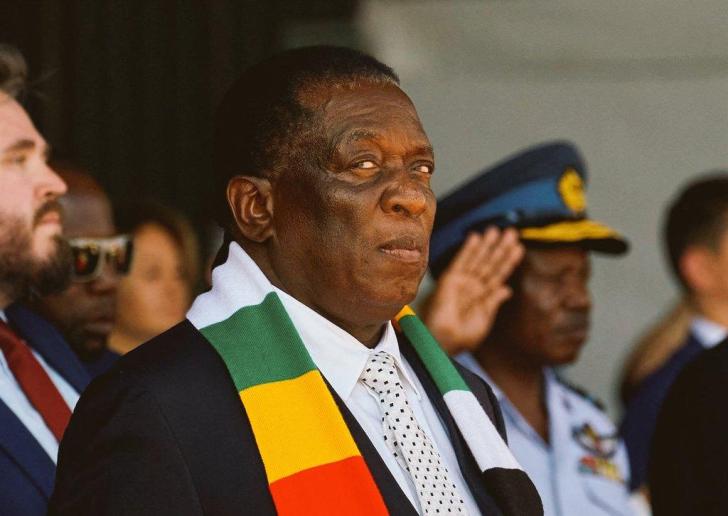News / National
Mnangagwa moves to extend his rule
20 Jan 2025 at 11:09hrs |
0 Views

President Emmerson Mnangagwa's initiative to extend his rule beyond the constitutional two-term limit appears to be gathering momentum. Justice Minister Ziyambi Ziyambi has taken the first steps in initiating a legal process to facilitate this extension, despite Mnangagwa's previous assertions of being a staunch "constitutionalist" upon his assumption of power following a military intervention in November 2017.
Despite his public denials and claims that he does not intend to cling to power, Mnangagwa is pushing forward with plans to potentially extend his presidency from 2028 to 2030, or beyond. This move follows the Zanu-PF annual conference held in Bulawayo last October, where a resolution was passed allowing Mnangagwa to extend his rule should he choose to do so. However, the resolution acknowledged the challenges involved in achieving this goal.
In an interview with state-controlled The Sunday Mail, Ziyambi defended the initiative, stating, "Firstly, let me clarify that Zanu-PF National People's Conference resolutions are not individualist but collective. They are a product of wide consultation and consensus from districts to provinces, leading up to their adoption at conference... In other words, they are bottom up, with the people indicating what they desire done by the Government through the party."
Ziyambi emphasized that once resolutions are adopted, each ministry will take up issues raised with respect to their respective portfolios. He noted that the Secretary-General will communicate with ministries regarding the resolutions, prompting necessary legislative interventions if needed.
"The constitutional amendment will follow the relevant processes," he stated, confirming that it will require two referenda to be completed. Ziyambi explained the steps involved, starting with the formulation of principles by Cabinet, drafting the Bill, conducting nationwide consultations, and ultimately presenting it before Parliament for gazetting.
Ziyambi further asserted that the process will reflect the will of the people, stating, "The grassroots are the ones that indicate issues they want to be dealt with at the conference. These are then discussed at district and provincial levels, leading up to consolidated conference resolutions. These then inform policy issues regarding the way forward."
The move has sparked debate within and outside the ruling party, with critics raising concerns about potential constitutional violations and the consolidation of power beyond democratic norms. The upcoming legislative process is likely to be closely scrutinized as it unfolds.
Despite his public denials and claims that he does not intend to cling to power, Mnangagwa is pushing forward with plans to potentially extend his presidency from 2028 to 2030, or beyond. This move follows the Zanu-PF annual conference held in Bulawayo last October, where a resolution was passed allowing Mnangagwa to extend his rule should he choose to do so. However, the resolution acknowledged the challenges involved in achieving this goal.
In an interview with state-controlled The Sunday Mail, Ziyambi defended the initiative, stating, "Firstly, let me clarify that Zanu-PF National People's Conference resolutions are not individualist but collective. They are a product of wide consultation and consensus from districts to provinces, leading up to their adoption at conference... In other words, they are bottom up, with the people indicating what they desire done by the Government through the party."
Ziyambi emphasized that once resolutions are adopted, each ministry will take up issues raised with respect to their respective portfolios. He noted that the Secretary-General will communicate with ministries regarding the resolutions, prompting necessary legislative interventions if needed.
"The constitutional amendment will follow the relevant processes," he stated, confirming that it will require two referenda to be completed. Ziyambi explained the steps involved, starting with the formulation of principles by Cabinet, drafting the Bill, conducting nationwide consultations, and ultimately presenting it before Parliament for gazetting.
Ziyambi further asserted that the process will reflect the will of the people, stating, "The grassroots are the ones that indicate issues they want to be dealt with at the conference. These are then discussed at district and provincial levels, leading up to consolidated conference resolutions. These then inform policy issues regarding the way forward."
The move has sparked debate within and outside the ruling party, with critics raising concerns about potential constitutional violations and the consolidation of power beyond democratic norms. The upcoming legislative process is likely to be closely scrutinized as it unfolds.
Source - online
Join the discussion
Loading comments…




























